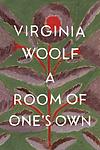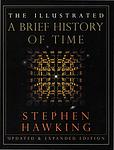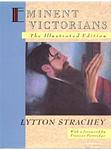The Greatest British, German "Nonfiction" Books of All Time
Click to learn how this list is calculated.
This list represents a comprehensive and trusted collection of the greatest books. Developed through a specialized algorithm, it brings together 300 'best of' book lists to form a definitive guide to the world's most acclaimed books. For those interested in how these books are chosen, additional details can be found on the rankings page.
Genres
Countries
Date Range
Reading Statistics
Click the button below to see how many of these books you've read!
Download
If you're interested in downloading this list as a CSV file for use in a spreadsheet application, you can easily do so by clicking the button below. Please note that to ensure a manageable file size and faster download, the CSV will include details for only the first 500 books.
Download-
1. On the Origin of Species by Charles Darwin
This groundbreaking work presents the theory of evolution, asserting that species evolve over generations through a process of natural selection. The book provides a comprehensive explanation of how the diversity of life on Earth developed over millions of years from a common ancestry. It includes detailed observations and arguments to support the idea that species evolve by adapting to their environments, challenging the prevailing belief of the time that species were unchanging parts of a designed hierarchy.
-
2. A Room of One's Own by Virginia Woolf
This book is an extended essay that explores the topic of women in fiction, and the societal and economic hindrances that prevent them from achieving their full potential. The author uses a fictional narrator and narrative to explore the many difficulties that women writers faced throughout history, including the lack of education available to them and the societal expectations that limited their opportunities. The central argument is that a woman must have money and a room of her own if she is to write fiction.
-
3. Communist Manifesto by Karl Marx, Friedrich Engels
This influential political pamphlet advocates for the abolition of private property, the rights of the proletariat, and the eventual establishment of a classless society. The authors argue that all of history is a record of class struggle, culminating in the conflict between the bourgeoisie, who control the means of production, and the proletariat, who provide the labor. They predict that this struggle will result in a revolution, leading to a society where property and wealth are communally controlled.
-
4. The Life of Samuel Johnson by James Boswell
"The Life of Samuel Johnson" is a comprehensive biography that chronicles the life of one of the most prominent English literary figures of the 18th century. The book provides an in-depth account of Samuel Johnson's life, his literary works, and his significant contribution to English literature. It also offers a detailed portrait of his personality, his relationships, his struggles with depression and illness, and his views on a variety of subjects. The book is as much a biography of Johnson as it is a portrayal of 18th-century England.
-
5. Thus Spake Zarathustra by Friedrich Nietzsche
This philosophical novel explores the idea of the Übermensch, or "Overman," a superior human being who has achieved self-mastery and created personal meaning in life. The protagonist, Zarathustra, descends from his solitary life in the mountains to share his wisdom with humanity. Through a series of speeches and encounters, he challenges traditional beliefs about good, evil, truth, and religion, and advocates for the transcendence of man into a higher form of existence. The book is noted for its critique of morality, its poetic and often cryptic language, and its exploration of complex philosophical concepts.
-
6. A Vindication of the Rights of Woman by Mary Wollstonecraft
This influential work from the late 18th century argues passionately for the education and societal recognition of women. The author asserts that women are not naturally inferior to men, but appear to be only because they lack education. She suggests that both men and women should be treated as rational beings and imagines a social order founded on reason. The book is considered one of the earliest works of feminist philosophy.
-
7. Leviathan by Thomas Hobbes
"Leviathan" is a seminal work of political philosophy that presents an argument for a social contract and rule by an absolute sovereign. The author argues that civil peace and social unity are best achieved by the establishment of a commonwealth through social contract. He suggests that without a strong, central authority to impose law and order, society would descend into a state of nature, characterized by perpetual war and chaos. The book is divided into four parts: Of Man, Of Commonwealth, Of a Christian Commonwealth, and Of the Kingdom of Darkness.
-
8. Relativity by Albert Einstein
This book is a comprehensive introduction to the theory of relativity written by the physicist who developed the theory. It covers both the special and general theories of relativity and provides an accessible explanation of the physics involved, including the nature of light, time, and gravity. The book also discusses the philosophical implications of relativity and its impact on our understanding of reality. Written for a general audience, it aims to make complex scientific concepts understandable to non-experts.
-
9. The General Theory of Employment, Interest and Money by John Maynard Keynes
This influential economic treatise presents a groundbreaking theory that challenges classical economics, asserting that aggregate demand, driven by public and private sector spending, is the primary factor influencing economic activity and employment levels. The book also introduces the concept of fiscal and monetary policies as tools to manage economic downturns, thus shaping the foundation of modern macroeconomics. It further critiques the idea that market economies would automatically provide full employment and argues for active government intervention to prevent economic recessions and depressions.
-
10. Homage to Catalonia by George Orwell
The book is a personal account of the author's experiences during the Spanish Civil War, specifically his time with the POUM (Partit Obrer d'Unificació Marxista) militia in Catalonia. He provides an in-depth look at the social revolution that took place, the daily life of a soldier, the political infighting and betrayals among the Republican factions, and his eventual disillusionment with the cause he initially supported. The book is both a war memoir and a detailed analysis of a complex political situation.
-
11. A Brief History of Time by Stephen Hawking
A Brief History of Time is a popular science book that explores a broad range of topics in cosmology, including the Big Bang, black holes, light cones and superstring theory. The author does not shy away from complex theories and concepts, but explains them in a way that is accessible to non-scientific readers. The book also discusses the possibility of time travel and the boundaries of scientific knowledge. Throughout, the author emphasizes the ongoing quest for a unifying theory that can combine quantum mechanics and general relativity into one all-encompassing, coherent theoretical framework.
-
12. The Decline and Fall of the Roman Empire by Edward Gibbon
This historical work provides a comprehensive perspective on the fall of the Roman Empire, examining its decline from the height of its power in the second century A.D. through the fall of Constantinople in 1453. The author meticulously chronicles the empire's deterioration due to a variety of factors, including moral decay, economic crisis, military incompetence, barbarian invasions, and internal power struggles, while also offering insightful commentary on the broader implications for Western civilization.
-
13. Black Lamb and Grey Falcon by Rebecca West
"Black Lamb and Grey Falcon" is a comprehensive and detailed travelogue of Yugoslavia, penned by a British author during the brink of World War II. The book beautifully interweaves history, politics, culture, and personal experiences to paint a vivid picture of the Balkan region. It also serves as a profound reflection on the impending war and the author's concerns about the rise of fascism in Europe, making it not just a travel book but also an essential historical document.
-
14. Critique of Pure Reason by Immanuel Kant
This philosophical work delves into the nature and limits of human knowledge, proposing that while our knowledge begins with experience, it doesn't necessarily arise out of experience. The author argues that pure reason itself has the ability to contribute to our knowledge and understanding of the universe. He further explores the concept of metaphysics, asserting that while it is possible, it is also severely limited by the human mind's ability to comprehend it.
-
15. Das Kapital by Karl Marx
This influential work is a comprehensive critique of political economy, exploring the complex nature of capitalism, its production processes, and its societal impact. The book delves into the intricacies of commodities, labor theory of value, surplus value, and exploitation, arguing that capitalism is inherently unstable and prone to periodic crises. It also posits that the capitalist system ultimately leads to the concentration of wealth in fewer hands, causing social inequality and paving the way for its own demise. The book is widely regarded as a foundational text in the development of socialist and communist ideologies.
-
16. On Liberty by John Stuart Mill
This influential philosophical work explores the concept of personal freedom and societal limits, arguing that individuals should have the right to act as they want, provided they do not harm others. The book elaborates on the nature and limits of the power that can be legitimately exercised by society over the individual, and champions individuality and nonconformity. It also discusses freedom of speech, asserting that all opinions should be openly expressed to prevent any single viewpoint from becoming dogma.
-
17. Testament Of Youth by Vera Brittain
Testament of Youth is a poignant memoir detailing the author's experiences during World War I. The narrative follows her journey from her early life, her time as a Voluntary Aid Detachment nurse serving in London, Malta, and France, and her later years as a writer and pacifist. The author's personal loss, including the death of her fiancé and her brother, and the impact of the war on her generation, is a central theme, offering a unique female perspective on the devastating effects of war.
-
18. The Making of the English Working Class by E. P. Thompson
This book is a comprehensive historical analysis of the formation of the English working class from the late 18th century to the mid-19th century. The author meticulously examines various aspects of society including the Industrial Revolution, the rise of Methodism, and political movements, arguing that the working class was not a byproduct of economic factors alone, but was actively self-formed through struggles over issues like workers' rights and political representation. The book is widely regarded as a seminal text in social history due to its focus on the experiences and agency of ordinary people.
-
19. The Second World War by Winston Churchill
This book provides a comprehensive overview of the Second World War from the perspective of one of its most influential leaders. It covers the entire span of the war, from its origins in the political and economic turmoil of the 1930s, to the major battles and strategic decisions that shaped its course, to its aftermath and impact on the world. The author's unique perspective and firsthand experience, combined with his eloquent and insightful writing, make this a definitive account of one of the most important events in modern history.
-
20. Principia Mathematica by Isaac Newton
This seminal work is a comprehensive exploration of classical physics, laying the groundwork for much of modern science. The author presents his three laws of motion and law of universal gravitation, effectively bridging the gap between the abstract world of mathematics and real-world phenomena. The book also delves into the principles of calculus, a mathematical discipline the author significantly developed. This work has had a profound influence on the scientific understanding of the physical universe.
-
21. The Origins of Totalitarianism by Hannah Arendt
The book explores the roots of totalitarian systems, particularly focusing on Nazi Germany and Stalinist Russia. It delves into the historical, social, and political circumstances that led to the rise of these oppressive regimes, including anti-Semitism, imperialism, and the decline of the nation-state. The author further discusses the nature of power, the role of propaganda, and the manipulation of the masses in these systems, providing a comprehensive analysis of totalitarianism.
-
22. Eminent Victorians by Lytton Strachey
"Eminent Victorians" is a biographical work that profiles four influential figures from the Victorian era. The book provides an in-depth look into the lives of Cardinal Manning, Florence Nightingale, Thomas Arnold, and General Gordon, exploring their respective contributions to British society during the 19th century. Through these portraits, the book offers a critical and often satirical analysis of Victorian values, institutions, and moral attitudes, challenging the idealized narrative of the era.
-
23. The Selfish Gene by Richard Dawkins
This groundbreaking book presents a revolutionary perspective on the theory of natural selection. The author argues that genes, rather than individuals or species, are the true units of evolution. He suggests that these 'selfish' genes are driven by their own survival, leading to complex behaviors and characteristics in the organisms they inhabit. This work reframes our understanding of evolution, emphasizing the gene's role in shaping biological life and behavior.
-
24. Good-Bye to All That by Robert Graves
This memoir provides a candid and unflinching look at the horrors of World War I, as experienced by a young British officer. The narrative explores the brutality and futility of war, the author's struggle with shell shock, his disillusionment with the military and British society, and his decision to leave England for a new life abroad. It also offers insights into the author's personal life, including his troubled marriage and his relationships with other prominent figures of the time.
-
25. The Seven Pillars of Wisdom by T. E. Lawrence
"The Seven Pillars of Wisdom" is an autobiographical account of the experiences of a British soldier serving in the Middle East during World War I. The narrative offers an insider's perspective of the Arab Revolt against the Ottoman Empire, detailing the author's role in the guerrilla warfare, his interactions with various tribal leaders, and his deep understanding and appreciation of the Arabic culture. The book is also known for its philosophical reflections on war, politics, and the author's personal struggles.
Reading Statistics
Click the button below to see how many of these books you've read!
Download
If you're interested in downloading this list as a CSV file for use in a spreadsheet application, you can easily do so by clicking the button below. Please note that to ensure a manageable file size and faster download, the CSV will include details for only the first 500 books.
Download























